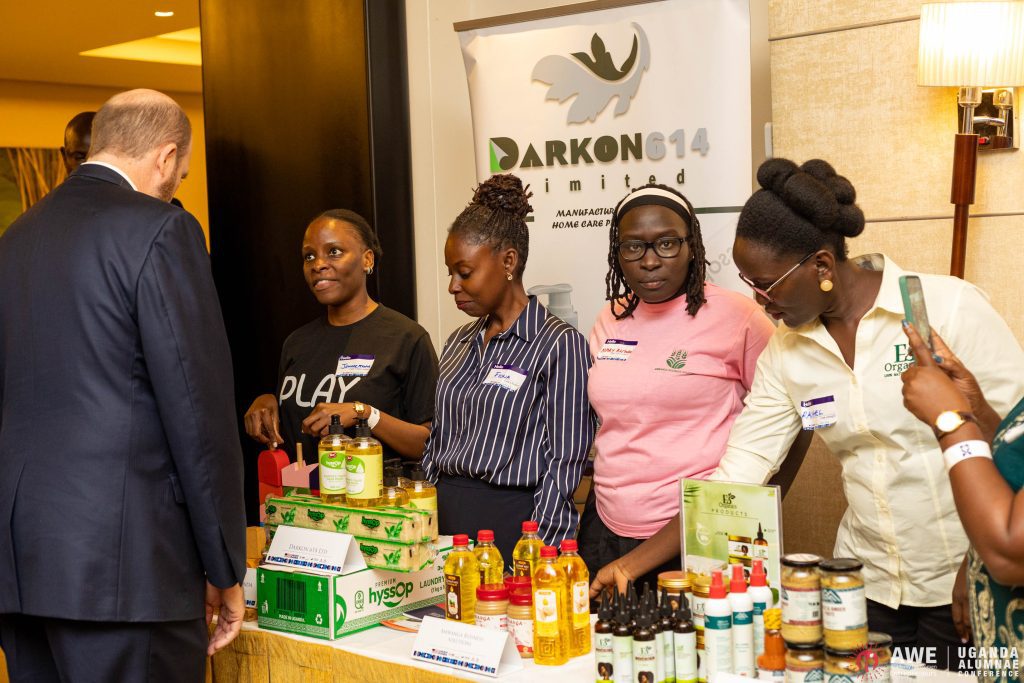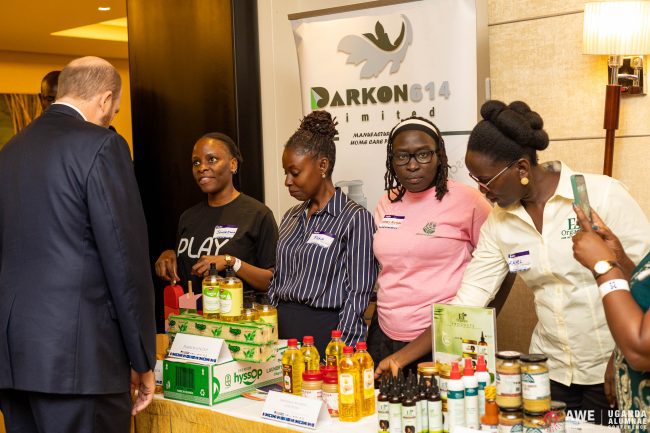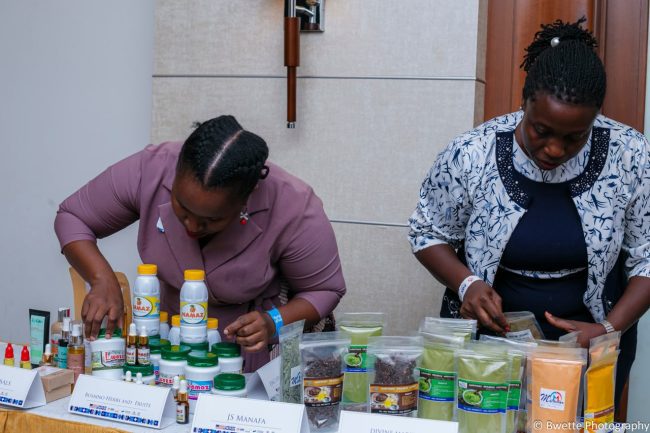

Uganda’s 2025/26 Budget Creates a Strategic Pathway for Women Entrepreneurs to Prosper
Uganda’s Financial Year 2025/2026 budget, themed around “Full Monetization of the Ugandan Economy through Commercial Agriculture, Industrialization, Expanding and Broadening Services, Digital Transformation and Market Access,” isn’t just an economic blueprint for the next twelve months; it is a significant launchpad for the nation’s women.
While ambitious in its entirety, this is a budget that moves beyond rhetoric, providing targeted funding, progressive policy reforms, and sectoral investments designed to position women at the centre in Uganda’s transformation story.
In the financial year 2024/25, the government provided direct credit to the private sector and households through PDM, Emyooga, youth and women’s livelihood funds, and women’s enterprise support funds, totalling Shs 9.1 trillion.


Academy for Women Entrepreneurs Exhibition during the AWE Conference in Kampala
This financial year, 2025/26, the Parish Development Model (PDM) and the Emyooga fund have been allocated over Shs 1.1 trillion in new capital and have been designed to transition families from a hand-to-mouth existence into a money economy.The 2025/26 budget builds on that foundation with a sharper focus on women-centric initiatives.
The established Uganda Women Entrepreneurship Programme (UWEP), a proven catalyst that has already propelled over 235,000 women into business, continues to be an important anchor for growth. It has now been powerfully complemented by a Shs 231.3 billion allocation to the GROW (Generating Growth Opportunities and Productivity for Women Enterprises) project.
Furthermore, the Uganda Development Bank’s Shs 1.0 trillion capitalization includes specific windows for women-owned businesses engaged in wealth creation. These programs provide not just funding but also lower interest rates and crucial business support to help women entrepreneurs scale up ventures.

For example, expanding a dairy cooperative, starting a line of packaged foods for export, or investing in new machinery for a workshop. Thus positioning women to be the primary beneficiaries of the budget’s largest wealth-creation engines.Focusing on the budget’s sectoral allocations, the Shs 1.86 trillion for agro-industrialisation will bolster a sector where women form the backbone. Investments in education (Shs 5.04 trillion) and health (Shs 5.87 trillion), particularly in reproductive health and nutrition, are essential for women’s sustained participation in the economy. The creative arts, a vibrant space for many young Ugandan women, will see its revolving fund boosted to Shs 23 billion, while the Shs 381.75 billion for ICT and digitalization opens doors for women in the burgeoning tech and business process outsourcing sectors.


Academy for Women Entrepreneurs Exhibition during the AWE Conference in Kampala
Crucially, the budget goes beyond direct funding to address systemic barriers. The new three-year income tax holiday for start-ups, the removal of stamp duty on mortgages, and an exemption from capital gains tax when formalizing a business by transferring assets are game-changing policies. They directly lower the cost of capital and reduce the friction of moving from the informal to the formal sector — a critical leap for many youth and women-led SMEs seeking to scale.
This is where private-sector actors like SHONA become essential in bridging the gap between government policy and on-the-ground access. As an organisation dedicated to transforming East Africa’s economies through Good Businesses, SHONA is uniquely positioned to directly or indirectly operationalize this budget.
SHONA’s investment-readiness programs provide a guide for women founders in structuring their companies to maximize these opportunities to accelerate the growth of their business, making them more attractive to private investors. Through its program design, to Identify, Guide, Back and Connect high-potential ambitious entrepreneurs, SHONA acts as a vital intermediary, preparing its cohorts to successfully apply for and manage capital from entities like UDB and the GROW project effectively for business growth.
The 2025/2026 budget, therefore, offers Uganda’s women diverse pathways to economic advancement. The challenge and opportunity now lie in ensuring these funds and programs are accessed equitably and implemented effectively to achieve a prosperous economy.





